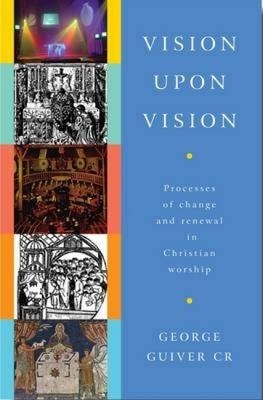Monks are free from the social rules that everyone else has to follow and George Guiver CR has been telling it like it is for countless years. I’ve chatted with him on numerous occasions whilst at the College of the Resurrection and he has a propensity for dropping huge theological bombshells into the conversation and then wandering off for one of the monastic offices.

Vision Upon Visions is the first of his books I have read since I was a candidate for the priesthood contemplating The Fire And The Clay. Vision Upon Vision was recommended as an important source for my research into Anglican liturgy and inculturation. Within its pages are a rather comprehensive look at the history of liturgical development and the place of worship within society throughout the ages. This may sound like a dry topic, but Guiver’s refreshing directness cuts to the heart of the matter like a surgeon wielding a sternal saw.
The midsection of the book is an inspirational exploration of the relationship between the worship of the church and the culture in which it occurs. Guiver has prompted many questions that I suspect were already unspoken in the recesses of my mind. Do we check our culture at the door and worship as incomplete expressions of ourselves? Do we allow our liturgical responses to God to critique and inform our culture? These and countless other questions I will seek to explore in the coming months.
The final portion of the book is dedicated to the future of Christian worship. In a world that is shifting culturally with ever increasing speed, what is the vision for worship in the future? Guiver asks some provocative questions about worship from all traditions as he lays a vision for worship that both inspires and challenges the worshipper whilst edifying and glorifying God.
This is by no means a lightweight read; it has a distinctly academic depth to the material covered but Guiver’s style is easily accessible. I’d highly recommend it to anyone who is involved in leading worship.




